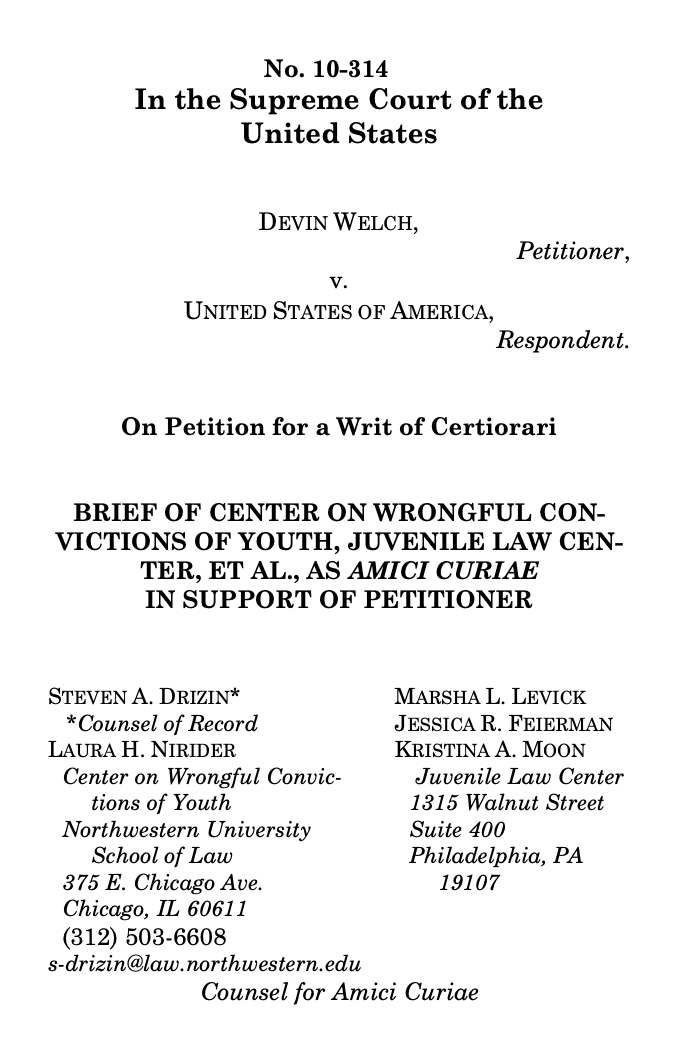
Summary of Argument
Amici Curiae ask this Court to grant certiorari to clarify that juvenile adjudications should not be used to enhance subsequent adult criminal sentences under Apprendi v. New Jersey, 530 U.S. 466 (2000).
This rule is proper for two reasons. First, as Judge Posner recognized in his dissenting opinion below, adjudications obtained in the juvenile court system as currently fashioned “may well lack the reliability of real convictions in criminal courts.” Welch v. United States, 604 F.3d 408, 432 (7th Cir. 2010) (Posner, J., dissenting). This systemic risk of unreli- ability is a result of several factors, including the ab- sence of jury trials; a juvenile court culture that dis- courages and sometimes precludes zealous and ad- versarial advocacy; and a heightened possibility that some of the evidence introduced in juvenile court, such as juvenile confessions, may be unreliable. Against such a backdrop, it would be fundamentally unfair to allow the use of juvenile adjudications to enhance adult sentences.
Second, the rule is consistent with this Court’s longstanding recognition of the differences between adults and juveniles. Through more than six decades of jurisprudence, this Court has recognized that youth are different from adults; they are less mature, more vulnerable to external pressure, and more capable of redemption and growth. The juvenile justice system has historically functioned with these differences in mind. Quoting Judge Posner below, “[t]he constitutional protections to which juveniles have been held to be entitled have been designed with a different set of objectives in mind than just recidivist enhancement.” Id. at 431. The use of juvenile adju- dications to enhance adult sentences years later runs fundamentally contrary to the notion of a separate, protective juvenile court system.